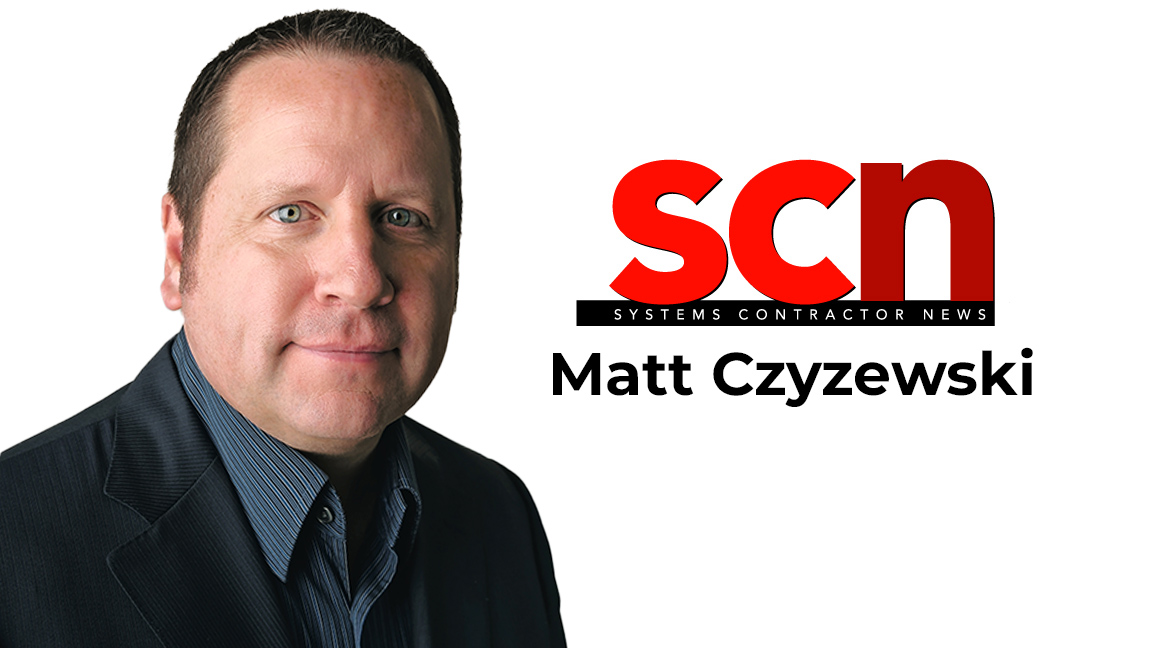Blueprint for Success: Steering Your Future
Build a career of intent, not happenstance, with planning and a willingness to grow.

A daily selection of features, industry news, and analysis for AV/IT professionals. Sign up below.
You are now subscribed
Your newsletter sign-up was successful
Navigating a career is often like taking a rafting trip down a river—full of twists and turns, paddling hard to stay in the current, moments of terror or excitement, and maybe even a few times when you find yourself going backward. It’s best to start the trip with a plan, knowing that you’ll have to adapt (possibly several times) based on where you’re at in the river versus where you want to be.
Make a Plan
At the start of your career, it might be hard to tell which lane you want to be in—engineering, management, sales, marketing, etc.—until you get some experience. And that’s OK. Some people may be happy as individual contributors, while others may want to pursue a management path.
[Blueprint for Success: Dance in the Rain]
Even after choosing a lane, you may recognize it’s not a good fit for your goals and interests. Allow some time to figure out what motivates you professionally and makes you happy/satisfied.
You should also be realistic with yourself regarding how long you want to stay with your current company or a particular industry. Are your interests strong enough to keep you satisfied for your entire career, or do you think you may want to pivot to an entirely new job or industry at some point?

I’ve been in product development/engineering and executive management for over 40 years in the AV industry, and it has been fun, challenging, and even frustrating at times. But I also know several people who have left one industry for another or one job function for another and have been extremely happy in their new role or company. Knowing your interest level may influence longer-term career choices.
Next, determine if there is a path to your goal with your current employer, but don’t be discouraged if there isn’t. This may tell you what your next move may need to be.
A daily selection of the top stories for AV integrators, resellers and consultants. Sign up below.
Talk to your manager about your career aspirations, present your plan, explain how you intend to fill any gaps in your skillset, and ask for their feedback on identifying your gaps. Assessing your skills and understanding what changes you need to make—be it moving to a different company, continuing your education, more job experience, technical training, or a combination thereof—is key to achieving your career goals.
Hopefully, your manager will be receptive to the plan and offer guidance and encouragement on how to proceed. If they’re not supportive, that may also be another indicator to seek success at a different company.
Unfortunately, Mike Tyson was right when he said, “Everyone has a plan until they get punched in the mouth.” Everyone’s career path is unique and needs frequent reassessment. Unanticipated changes at your current company, such as layoffs or office closures, may temporarily disrupt your long-term goals.
Realistically, we probably all know someone who has been laid off at least once, so your career may need to take a back seat to the reality of getting a job and reacquiring financial stability. Reassessing your career plan after getting established at your new company to see if it’s still the right way forward is a good idea.
Continue Your Education
Regardless of your current education level, there’s always more to learn. Many companies offer tuition reimbursement programs, allowing you to take classes at reduced cost or even for free if you meet specific criteria. Several education resources within the industry—AVIXA, NSCA, SynAudCon, and more—also deal with various topics to further our collective industry knowledge. Professional accreditation programs like Certified Technology Specialists (CTS) and Project Management Professionals (PMP) can go a long way toward establishing bona fides in your chosen field.
I also encourage people to look outside the industry, such as at executive courses from universities or professional seminars, to continue their education. Outside organizations and interfacing with peers in other industries help you gain a different perspective, diversify your thinking, and give exposure to how other companies function.
Look into professional organizations you can join that will also help you gain knowledge, perspective, and skills, such as Vistage, Rotary, IEEE, and AES, to name a few. Get involved with boards or committees in professional or charitable organizations. Those are another excellent opportunity to interface with people both inside and outside the industry.
Lastly, don’t overlook the value of soft skills. Regardless of your current role or future aspirations, developing your soft skills can immediately benefit you and the people you work with. Everyone can be better at communicating, conflict resolution, effective time management, and life in general.
Don’t be afraid to take refresher classes because best practices evolve. Certainly, basic principles like “treat others with respect” never go out of style, but there are many nuances to interpersonal skills and relationships that need to be practiced regularly.
Seek Out Feedback
Just because you think you may be “killing it” doesn’t mean others feel the same way. Check in with your manager and peers regularly, asking, “How am I doing?” or “What could I do better?” And prepare yourself for some frank feedback.
Outside organizations and interfacing with peers in other industries help you gain a different perspective, diversify your thinking, and give exposure to how other companies function.
If you’re managing your career effectively, you should never be surprised at the feedback on your annual review. How others perceive you can be, at times, wildly different from how you perceive yourself. Talk to friends at work and in your personal life to see what changes they have noticed. If they haven’t noticed any change, you may need to practice those skills more.
If you’re interested in management positions, consider seeking out professional coaching. Skills like motivating others, giving praise, and sharing constructive criticism do not always come naturally to everyone. Even if it comes naturally, getting some outside perspective or affirmation of our perceived abilities is not a bad idea. Again, these are all areas everyone can improve upon.
Reading or listening to books on subjects that help you progress is also important. Podcasts can also help improve skills, and following respected leaders inside and outside the AV industry on social media can lead to valuable suggestions or reading recommendations.
[Viewpoint: The Burden of Burnout]
Congratulations if you’ve already or will eventually reach your career goals. It takes a lot of time and intention for people to get where they want to be, myself included. Even if you reach your goal, keep going with your continuing education. We haven’t learned everything yet because we haven’t discovered everything yet. There are always newer, better, faster ways to do things. Take time to enjoy the trip, though, and celebrate the wins.
It’s your future, so never be shy about taking the helm.
Matt Czyzewski is the executive vice president at AtlasIED.

